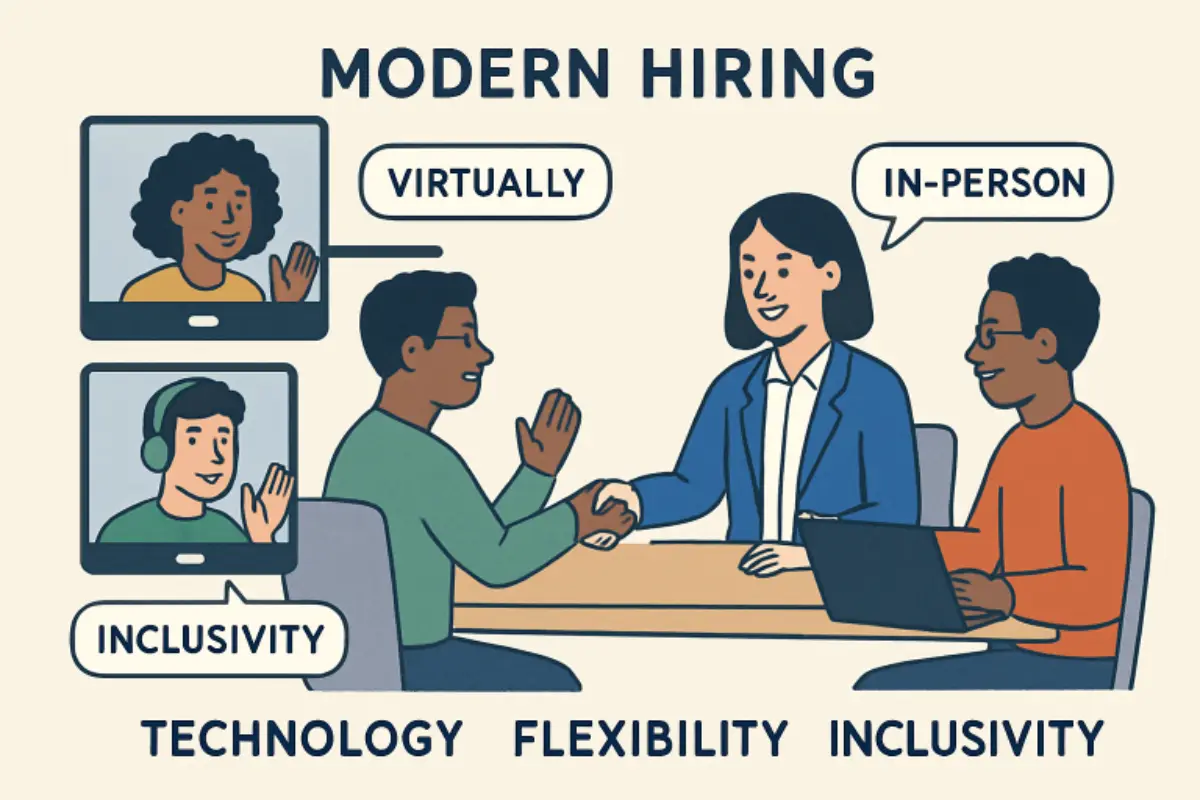In today’s competitive job market, attracting and retaining top talent hinges on delivering a positive and engaging candidate experience. Candidate experience statistics 2023 highlight how transparency, responsiveness, and seamless digital interactions significantly influence a candidate’s perception of a company. First impressions form rapidly, and every step—from the onboarding application—shapes how prospective employees view an organization.
To stay ahead, companies are rethinking their recruitment strategies to meet evolving expectations. Emphasizing inclusivity, adopting digital-first processes, and providing clear communication are no longer optional—they’re essential elements of a successful hiring approach.The way a company treats its job applicants directly impacts employer brand reputation, influencing not just who applies, but also who accepts an offer, and who becomes a long-term asset to the team.
Surveys and reports highlight that candidates now expect a frictionless application process, timely updates, and clear, personalized communication. Companies that can deliver on these expectations can create a competitive advantage and boost their hiring success.
Beyond the technology and data, the human touch still matters. Effective hiring requires a thoughtful blend of automation and empathy. A positive candidate experience is no longer a luxury—it’s necessary for organizations that want to stand out in today’s talent-driven world.
AI in Recruitment
AI-powered technologies are streamlining recruitment tasks, automating resume screening, and scheduling interviews, freeing time for recruiters to focus on relationship building and candidate engagement. AI also enables accurate candidate-job matching by rapidly analyzing complex data sets, resulting in better-fit hires and reduced time-to-fill. However, it’s essential to maintain balance; augmenting AI with human oversight ensures fairness and prevents bias in the hiring process.
Forbes’ insights on AI recruitment trends note that successful organizations are leveraging technology while retaining the critical personal elements of evaluation and decision-making.
Flexible Work Arrangements
The pandemic-driven shift to remote and hybrid work has now solidified into a long-term expectation. Candidates are not just interested in salary; work-life balance is now a significant decision factor. Organizations offering remote options, flexible scheduling, and hybrid workplaces draw from broader talent pools and meet modern employee needs. Employers that resist this shift may find themselves at a disadvantage as top candidates increasingly prioritize flexibility as a condition of employment.
Building flexibility into company culture also increases employee satisfaction and can help reduce turnover rates, giving organizations a strategic edge in today’s market.
Diversity, Equity, and Inclusion
Modern hiring strategies are deeply intertwined with Diversity, Equity, and Inclusion initiatives. Candidates actively seek workplaces that reflect social values such as fairness, representation, and respect for different backgrounds. Companies are responding with inclusive job postings, blind resume reviews, targeted outreach, and robust mentorship programs to foster diversity at all levels. Extensive training on unconscious bias is becoming standard for recruitment teams and across organizations to create more equitable and welcoming environments for everyone.
Research from McKinsey & Company demonstrates that diverse organizations are more innovative and financially successful, making DEI an imperative and ethical business.
Personalized Candidate Experiences
Personalization is now essential at every stage of the recruitment process. Tailored communications, sensitive and prompt feedback, and carefully crafted onboarding programs make candidates feel valued as individuals rather than just names in a database. This positive and personalized experience—shared on social media or review sites—elevates the employer brand and increases offer-acceptance rates and long-term retention.
Implementing candidate-centric practices, such as dedicated recruiters, customized application portals, and personalized interview processes, enhances each touchpoint and builds stronger relationships.
Employer Branding
A compelling employer brand has become a must-have in a crowded job market. Today, organizations continuously invest in demonstrating their culture, mission, and values. Candidates want authentic insights into what it’s like to work for a company before they even apply, often turning to platforms like LinkedIn, Glassdoor, or the company’s own social channels to inform their perception. Transparent communication about benefits, advancement opportunities, and workplace culture helps differentiate organizations and attract candidates who resonate with the brand’s ethos.
Crafting and promoting authentic stories, sharing employee testimonials, and showcasing workplace successes help companies build trust before, during, and after the hiring process.
Data-Driven Hiring Decisions
Data and analytics have transformed how organizations approach recruitment. By monitoring key metrics—such as time-to-hire, offer acceptance rates, candidate source effectiveness, and employee turnover—employers can identify strengths and areas needing improvement in their hiring process. A data-driven strategy makes it easier to spot bottlenecks, enhance candidate experience, and optimize recruitment outcomes.
Leveraging data to improve hiring strategies continuously allows organizations to stay agile and competitive in a rapidly changing landscape.
Focus on Employee Well-being
The focus on well-being—especially mental health support and general work-life balance—has emerged as a significant trend in attracting and retaining talent. Candidates are increasingly assessing prospective employers’ commitment to health, safety, and flexibility before making career decisions. Organizations are responding with accessible mental health resources, robust wellness programs, and flexible policies to support various needs.
Employees who feel supported by their organizations report higher satisfaction, productivity, and loyalty, creating a virtuous cycle of attracting more engaged and dedicated future hires.
Conclusion
The hiring landscape in 2024 is defined by agility, inclusivity, and the intelligent integration of technology alongside genuine human interaction. Organizations that successfully adapt to these trends—embracing AI, flexibility, DEI, personalized recruitment journeys, employer branding, data-driven decision-making, and a focus on well-being—are well-positioned to succeed in the fierce competition for top talent.




